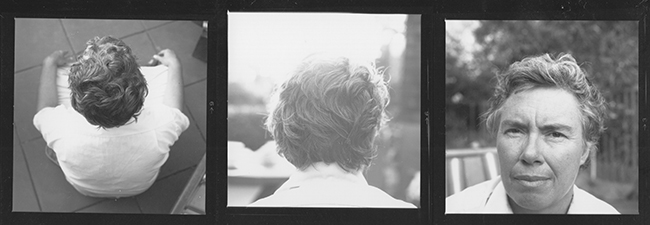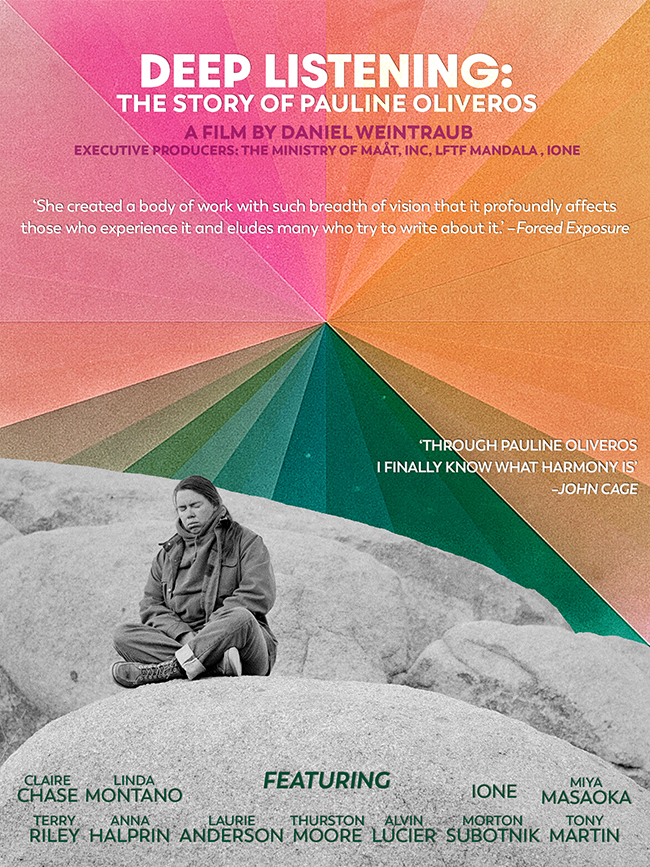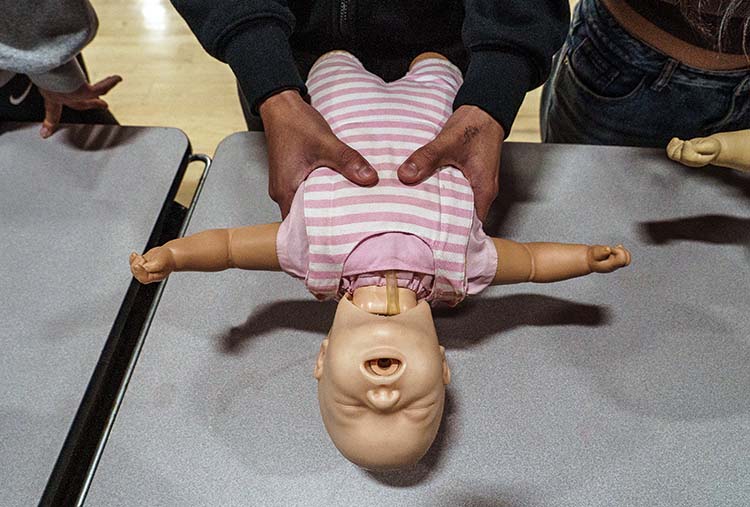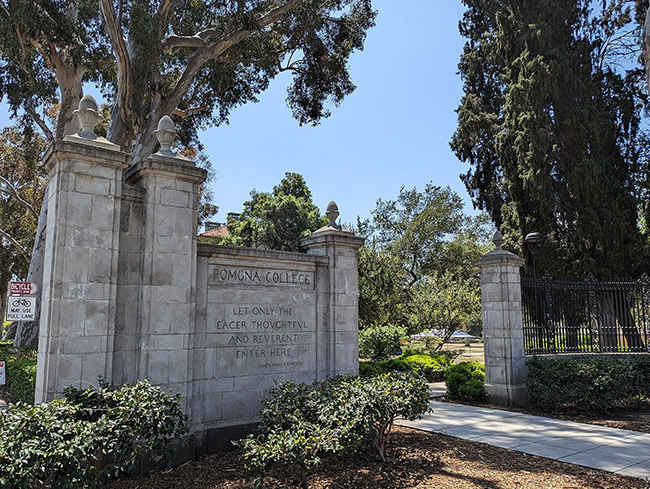‘Deep Listening:’ Exploring the life of a pioneering electronic musician

by Annabelle Ink | Special to the Courier
On Thursday, February 29, Pomona College hosts a free and open to the public 6 p.m. documentary screening of “Deep Listening: The Story of Pauline Oliveros,” followed by a director Q&A, at Rose Hills Theatre.
Directed by Daniel Weintraub, “Deep Listening” was released in 2022 and has since been screened at dozens of festivals and theaters around the world. It follows the life of the late Pauline Oliveros, a queer American composer, musician, feminist, and humanitarian. Weintraub was first introduced to Oliveros through a neighbor and instantly knew he wanted to share her story.
“I knew I had met a person who would inspire me throughout the inevitably lengthy process of making a film,” Weintraub wrote in a director’s statement. “I also felt an instant obligation to share the story of this incomparable sonic icon.”
Weintraub’s description of Oliveros as a “sonic icon” is certainly not ungrounded. Born to a pianist in 1932, Oliveros picked up her first instrument, the accordion, at the age of 10. She would go on to learn the violin, piano, tuba, and French horn, all while composing music of her own.
In the 1960s, Oliveros worked at the San Francisco Tape Music Center, where her technological work contributed significantly to the development of electronic music on the West Coast. Several years later, she left the center to work in the music department at the University of California, San Diego.
During the political unrest and tension of the late-1960s and early-1970s the trajectory of Oliveros’s career was changed forever.
“I was watching my television set when Robert Kennedy was assassinated,” she stated in a 1977 interview in the The New Yorker. “The Vietnam War protests and atrocities were at their height. A student at U.C.S.D. sat in the plaza, poured kerosene on himself and burned himself to death … I felt the temper of the times. I felt the tremendous fear.”
As the world turned to chaos, Oliveros turned to music and sound.
At UCSD, Oliveros began performing with a women’s-only group later referred to as the ♀ Ensemble. She and the other women in the group soon began experimenting with a variety of meditation and awareness exercises that ultimately inspired Oliveros’s “Sonic Mediations,” a series of instructions published in 1971 meant to help readers expand their consciousness and enter heightened states of awareness.
“All societies admit the power of music or sound. Attempts to control what is heard in the community are universal,” the introduction to the piece reads. “Sonic Meditations are an attempt to return the control of sound to the individual alone, and within groups especially for humanitarian purposes; specifically healing.”
Common throughout each of the 25 sections of “Sonic Meditations” is an emphasis on the act of listening. Although this emphasis was discussed in a specifically musical context, because of the timing of its publication, it was viewed by some readers as a reminder that listening can serve as a powerful form of change-driving activism.
Oliveros continued to teach the art of listening long after publishing “Sonic Meditations.” In 1989, she and two colleagues released “Deep Listening,” a CD they recorded 14 feet underground in a disused water tank. It reflected her growing commitment to this active form of listening, which she defined many years prior.
“Deep Listening is listening to everything all the time, and reminding yourself when you’re not,” she said in an interview. “But going below the surface too, it’s an active process. Hearing and listening are not the same thing.”
Oliveros dedicated much of the remainder of her life to sharing this practice, and in 2005, she renamed her Pauline Oliveros Foundation the Deep Listening Institute. The institute, which has since merged with the Center for Deep Listening, sought to promote creative and artistic expression among a wide range of people, including children with severe physical and mental disabilities.
With Oliveros’s death in 2016, Weintraub emphasized his increasing devotion to sharing her story through “Deep Listening: The Story of Pauline Oliveros.”
“During her life, Pauline built an incredible world-wide community,” Weintraub wrote. “‘Deep Listening: The Story of Pauline Oliveros’ is not only a film about a crucial piece of American cultural evolution, but a vehicle through which we can continue to expand Pauline’s community and its commitment to listening and understanding.”
Event organizer Erica Tyron, director of Smith Campus Center and student media at Pomona College, echoed this appreciation for Oliveros’s story and encouraged community members to come to the screening.
“Pauline’s story will appeal to anyone who may be interested in cultivating a practice of listening into their own lives, as a way to connect, collaborate, with one another and within our environment,” Tyron wrote in an email.
“Deep Listening: The Story of Pauline Oliveros,” screens at 6 p.m. Thursday, February 29, at Rose Hills Theatre, 170 E. Sixth St., Claremont, CA 91711. The free and open to the public screening will be followed by a director Q&A with Daniel Weintraub. More information is at pomona.edu/events.












0 Comments